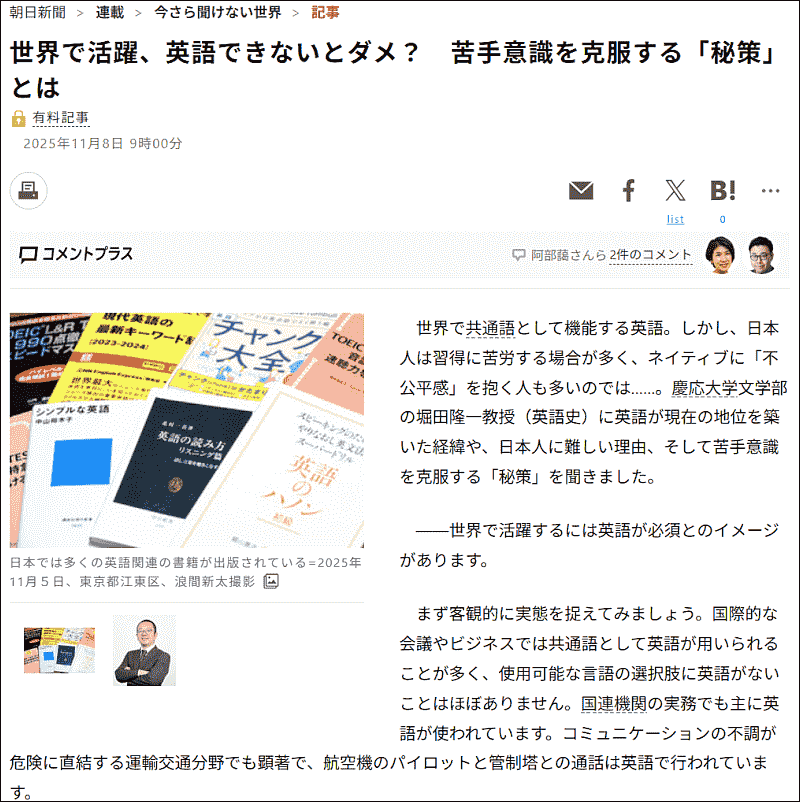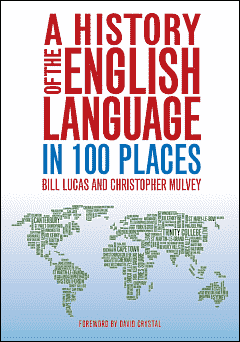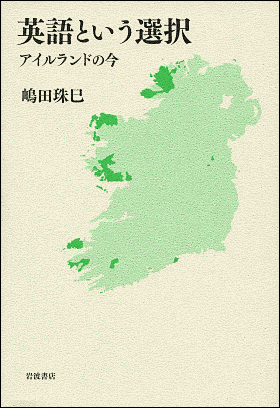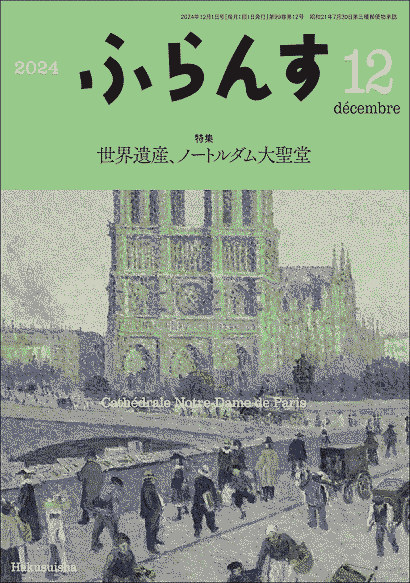2025-11-19 Wed
■ #6050. ニュージーランドはアメリカ英語と距離を置きたい? [new_zealand_english][ame][sociolinguistics][americanisation]
ニュージーランドはオーストラリアとともに歴史的にイギリスとの結びつきが強く,話されている英語変種についても,明らかにイギリス系変種からの派生であり,アメリカ変種と比べると差がある.しかし,世界における米国(の英語)の圧倒的な影響力のもと,ニュージーランド英語もご多分に漏れず,主に語彙などで americanisation の気味がみられる.
ニュージーランド人にとって,英語のアメリカ化は現実としては受け入れざるを得ないところがあるだろうが,心情としてはあまり好ましく思っていない向きもありそうだ.アメリカ英語への嫌悪感や,あるいは逆に憧れは,世代によっても異なるだろう.Bauer は,ニュージーランド人の対アメリカ英語感情について,次のように述べている.
. . . there exists in New Zealand (as in Britain) an anti-American linguistic chauvinism which is entirely surprising in the light of the general use in the community of a number of forms which are American in origin. It is not clear how widespread these attitudes are in the community, but the fact that they exist is shown by the following extracts from Letters to the Editor of New Zealand periodicals:
Most of our worst grammatical or pronunciatory [sic] errors stem from America. (The Listener, 10 November 1973)
Why don't we improve our English instead of adopting a worse speech from a culture which branched off from England several centuries ago? (The Listener, 25 November 1978)
We are not Americans, and I know I for one do not like the way this country is trying to carbon copy itself with American influence. (The Otago Daily Times, 12 September 1984)
Bauer がニュージーランド英語を概説的に記述したのは30年以上も前のことでもあり,現状がどうなっているのか詳しくは分からない.ただし,とりわけ年配の人々が若者のアメリカンな言葉遣いを嘆かわしく思っている,という事情は今でも変わらずあるようである.関連して,heldio 配信回「#1631. アメリカ英語は嫌われ者?」もどうぞ.
・ Bauer L. "English in New Zealand." The Cambridge History of the English Language. Vol. 5. Ed. Burchfield R. Cambridge: CUP, 1994. 382--429.
2025-11-17 Mon
■ #6048. 大学ジャーゴン --- オタゴ大学の大学案内より [university_of_otago][slang][register][sociolinguistics][abbreviation]
オタゴ大学の図書館に,新入生のための案内のパンフレットがあり,ふと手に取ってみた.そのなかに,UNIVERSITY JARGON と題するコラムがあった.大学での修学の仕方を手短かに教える内容だ.
UNIVERSITY JARGON
Starting to research your study options and already feeling lost in the jargon? Here are some common terms you're likely to come across.
A DEGREE is the qualification you complete at university. This is your overall PROGRAMME. Your degree will have an abbreviation such as BA, BSc or BCom. That's code for Bachelor of Arts, Bachelor of Science, or Bachelor of Commerce, and so on.
Some PROGRAMMES, such as Health Sciences First Year (HSFY), will lead on to many other degrees.
The SUBJECT you specialise in within your degree is called your Major. When you start your first year at university, choose three or four subjects you'd like to try. One will become your major.
In many degrees you can choose to have a MINOR as well. This is a subject you have stuided at each level, but not in as much depth as your major.
Each subject has LEVELS (100, 200, 300). The first courses youtake are called 100-level papers or beginner papers.
Each subject is divided into PAPERS. They are like topics within each subject --- the building blocks of your degree. They have codes like HIST 104, PSYC 201 and MART 304. The papers you choose each year are your course of study.
When you pass each paper, you get POINTS towards your degree. Papers are generally worth 18 points and a three-year degree needs 360 points. This usually consists of 20 papers, an average of 7 papers per year.
A DOUBLE DEGREE is when you study two degrees at the same time. There are also options to combine two majors from different degrees in a single four-year degree. These COMBINED DEGREES include Arts and Business, Arts and Science, and Business Science.
かなり複雑な履修システムをコンパクトに解説している文章だと思うが,新入生にとって初見で理解するのは容易ではないだろう.読み手の私は大学のシステムを理解しているので,これだけで分かるのだが,実際には凝縮しすぎているように思われる.たとえば major と specialise という jargons の意味は,相互に規定されるものであるから,同じ文に共起することによって,一方でともに理解しやすくなるという事情もあるかもしれないが,他方でいずれもチンプンカンプンとなってしまう恐れがある.
この文章は,個々の jargon を新入生のために解説している文章として読むのが普通だろうが,実は新入生に jargon とは何かを教える文章となっているのではないかとも解釈でき,おもしろい.つまり,ここで新入生を意味不明な jargon の羅列にさらすことによって,大学という特有の世界に誘い,仲間意識を醸成しようとしているのだ,と.
jargon の役割は,その意味が一見して自明ではないところに存する.jargons の羅列やその語彙体系は,独特で魅惑的な世界をちらつかせ,そこに引き寄せられる者のみに入会を許可する社会言語学的な機能をもっている.
関連して「#2410. slang, cant, argot, jargon, antilanguage」 ([2015-12-02-1]) を参照.
2025-11-15 Sat
■ #6046. オタゴ大学 --- ダニーデンにあるニュージーランド最古の大学 [university_of_otago][new_zealand_english][sociolinguistics][history]
一昨日の heldio 配信「#1628. ニュージーランド最古のオタゴ大学の時計台の前より」は,NZの南島のダニーデンに位置するオタゴ大学(University of Otago)のキャンパスからお届けしました.大学のシンボルである時計台の前に広がる芝生より,この地の植民史と英語史に思いを馳せました.
Captain Cook (1728--79) が1769年にニュージーランドに訪れ,先住民のマオリ人と初めて接触した後,この地はヨーロッパ人たちにとって鯨やアザラシの漁場となりました.その後,1840年に正式にイギリスの植民地となり,主にイギリス人による植民が一気に進みました.その後間もない1869年には,ダニーデンにニュージーランド最古の大学としてオタゴ大学が創立されました.このスピーディな展開には驚くばかりです.背後には初期移民たちの宗教上の情熱,啓蒙思想,勤勉さがあったのですが,その程度がいかに凄まじかったかが想像されます.
オタゴ大学の創立,より広くはダニーデンという町の建設に関わった初期移民の顔ぶれを見ると,スコットランド一色であることがわかります.初代学長を務めたのは,熱心な聖職者であった Thomas Burns (1796--1871) です.彼は,スコットランドを代表する詩人 Robert Burns (1759--96) の甥にあたります.
また,私が愛着を感じてやまないのは,このオタゴ大学の時計台が,私の母校でもあるスコットランドのグラスゴー大学の建築様式にインスピレーションを受けているという事実です.ダニーデンの町並み全体が,スコットランドの首都エディンバラを思わせる一方で,この大学の時計台はグラスゴーの雰囲気を纏っているのです!
この大学の歴史を語る上でもう1つ見逃せないのが,女性の入学を許可したことです.1871年の新体制において,オタゴ大学は,イギリス帝国内で初めてすべての階層の女性に学びの扉を開いた大学となりました.
もう1点,同時代の大きな出来事として,この町の急速な経済発展を支えた1861年のゴールドラッシュがあります.これにより,オーストラリア人をはじめとして,遠く中国からも多くの人々が金に惹かれて流入しました.これは,スコットランド英語の影響が強かった,この土地の初期の英語に,オーストラリア英語や,さらに異言語との接触の機会を与えることになりました.ニュージーランド英語史上の重要な契機だったといってよいでしょう.
ダニーデンという都市とオタゴ大学は,英語史のメインストリームからは外れたニュージーランドという場所にありながらも,英語の拡散,変種の移植,方言・言語接触といった,英語史における社会言語学的な話題を凝縮して見せてくれています.
2025-11-09 Sun
■ #6040. 今朝の朝日新聞朝刊に「英語帝国主義」をめぐるインタビュー記事が掲載されています [notice][sociolinguistics][helkatsu][linguistic_imperialism][world_englishes][elf][elt][hel_education][demography][voicy][heldio]

昨日11月8日(土),朝日新聞デジタル版にインタビュー記事「世界で活躍,英語できないとダメ? 苦手意識を克服する「秘策」とは」が公開されました.この記事は,同紙の連載企画「今さら聞けない世界」の一環として,各分野の専門家へのインタビューを基にして,編集されたものです.
先日,連載の担当者の方より,「英語帝国主義」を念頭に,世界における英語の位置づけと,その英語に対して私たちはどのように臨めばよいかについて伺いたいとのご連絡をいただき,このインタビューを実施した次第です.貴重な機会をいただき,朝日新聞の関係者の方々に感謝申し上げます.
昨日公開されたデジタル版は有料記事となっておりますが,フルバージョンでお読みいただけます.また,紙面では本日11月9日(日)の朝刊に,同記事の短縮版が掲載される予定です.
さて,インタビュー(記事)の内容ですが,英語史研究者の立場から,英語が歴史を通じて築き上げてきた世界的な地位,日本語母語話者が英語学習で難しさを感じる構造的な要因,そして,苦手意識を乗り越えて自信をもって英語を使うための「秘策」についてお話ししました.
まず,国際的な舞台で英語が共通語 (lingua_franca) として機能しているという客観的事実をを確認しました.その上で,英語が世界的な地位を得た背景には,過去のギリシア語やラテン語など,かつての有力言語がたどった道筋と質的には同じ構造があることを指摘しています.特定の国家の政治的・経済的な力が,その言語の拡散を支えてきたという歴史的事実は,言語の力学を理解する上で重要です.この議論は,英語史における大きな論点の1つである「英語帝国主義批判」とも関わってきます.
次に,日本人にとって英語習得が難しいとされる構造的な理由についても触れました.日本語と英語は,発音や文法体系,語彙などの点で共通点が非常に少なく,言語の距離が遠いという事実があります.(数千年レベルで見れば)互いに方言といってよい関係にあるヨーロッパ諸語の母語話者と比べると,日本人が英語の習得に長い時間を要するのは,むしろ自然なことです.
さらに,単なる言語知識の問題を超えて,英米人と日本人の間には,コミュニケーションの土台となる宗教,歴史,文化,習慣の面での共通項も少なく,英語での会話における「作法」を知らないことが,習得のもう1つの大きな壁になっていることも指摘しました.欧州諸国の人々が英語での会話にあまり抵抗感がないのと比べると,日本人はいざ話そうとしたときに「そもそもどのように会話を始めたらよいのか」という戸惑いを感じやすいようです.
そして,記事のなかで最も注目していただきたいのが,苦手意識を克服し自信をもって話すための「秘策」です.具体的な内容はここでは伏せておきますが,英語史や社会言語学の知見に基づき,現在の世界の英語使用の実態に鑑みた,実践的なアドバイスとなっていると思います.鍵となるのは,世界の英語話者20億人のうち,英米人などの母語話者はマイノリティであるという事実です.
「英語帝国主義」については,本ブログでも linguistic_imperialism のタグの着いた記事をはじめとして,様々に議論してきました.ここでは Voicy heldio の関連回をご案内しておきたいと思います.ぜひお聴きいただければ.
・ 「#1607. 英語帝国主義から世界英語へ」
・ 「#145. 3段階で拡張してきた英語帝国」
改めて,紙面では本日11月9日(日)の朝刊に短縮版が掲載される予定ですので,そちらからもご一読いただければ幸いです.
2025-11-08 Sat
■ #6039. New Zealand English におけるマオリ借用語の発音をめぐる社会言語学 [sociolinguistics][new_zealand_english][maori][borrowing][loan_word][pronunciation][orthography][language_planning][writing][standardisation]
NZE には,マオリ語からの借用語が多く入っている.地名や人名などの固有名詞はもちろん,一般語も多く流入している.英語の文脈でマオリ借用語をどのように発音するか,という問題について,Bauer (398--99) が興味深い論点を示している.
The proper pronunciation of Maori is currently a controversial issue in New Zealand, and it is a subject on which feelings run high. The issue is at heart a political rather than a linguistic one, since it is clear linguistically that there is no good reason to expect native-like Maori pronunciation in words which are being used in English. None the less, it has the linguistic consequence that there is a good deal of variation in the way in which Maori loanwords are pronounced in English, with variants close to native Maori norms at the formal end of the spectrum, and much more Anglicised versions --- sometimes irregularly Anglicised versions --- at the other. To give some idea of the variation this can lead to, I present below a few place-names with a Maori pronunciation and one extreme English pronunciation. Variants are heard anywhere on the continuum between these two extremes.
この文章の後に具体例がいくつか挙げられているが,たとえばマオリ語でニュージーランドを表わす Aotearoa (長く白い雲の土地)は,マオリ語母語発音では /aːɔtɛːaɾɔa/ となり,これで発音する英語話者もいれば,そこから完全に英語化した /eɪətiəˈɹəʊə/ として発音する者もいる.また,この2つを両極として,中間的な発音も多数あり得るというのだから,揺れの激しさが想像される.
この揺れの背景には,英語とマオリ語の音韻体系の差異,マオリ語のリテラシー,オーディエンスへの配慮,マオリ語への立ち位置や思い入れ,言語計画・政策上の立場など,様々な言語学的,そしてなかんずく社会言語学的な要因が作用しているのだろう.国号の発音を1つとっても,そこに話者の態度や立場が色濃く反映している可能性があるということだ.
なお,マオリ語をローマ字で表記する際の綴字は,1830年代後半から1840年代までには標準化されていたという (Bauer 398) .意外と早かったのだな,という印象だ.
・ Bauer L. "English in New Zealand." The Cambridge History of the English Language. Vol. 5. Ed. Burchfield R. Cambridge: CUP, 1994. 382--429.
2025-10-30 Thu
■ #6030. 「3文字規則」まとめ --- 短い単語に隠された正書法とアイデンティティの問題 [three-letter_rule][orthography][spelling][personal_name][onomastics][sociolinguistics]
本ブログでも何度か取り上げてきた「3文字規則」 (three-letter_rule) についてポイントをまとめます.もっとも基本となる記事は「#2235. 3文字規則」 ([2015-06-10-1])です.
英単語を眺めていると,ごく短い2文字からなるものがいくつかあることに気づきます.an, is, of などです.このような短い語は,いずれも文法的機を帯びた「機能語」 (function word) であり,具体的な意味をもつ名詞や動詞に代表される「内容語」 (content word) ではありません.英語には,機能語は2文字以下の短さが許されるけれども,内容語については必ず3文字以上で綴られなければならないという「3文字規則」 (three-letter_rule) なる珍妙なルールがあります.
繰り返しますが,「3文字規則」が適用されるのは,内容語についてのみです.機能語,すなわち代名詞,助動詞,前置詞,接続詞などに代表される文法機能を担う語で,典型的に頻度がきわめて高い語類については,この規則は適用されません.たとえば,電子メールなどで頻繁に使われる2文字の単語 re (= about) は,頻度が高いものの,機能語であるため「3文字規則」の例外とはみなされません.
では,なぜ内容語は3文字を下限とするのでしょうか.この規則は,単語機能の効率性という実用的な尺度が関わっていると考えられます.一般的に,よく読み書きする単語の綴字は短いほうが効率的です.日常的によく使うわけですから,出番が多く,語形としては短い方に越したことはありません.これは統計的に考えても合理的な方策と言えます.
もちろん「規則」には例外が付きものです.ax (斧), ox (雄牛)のような一般的な例外がすぐに挙がってきますが,ほかにも専門的な例外として Od (ドイツの科学者 K. von Reichenbach が1845年に創成した仮説上の物理学的力)もあります.その他のエキゾチックな語として aa, ai, ba, bo, bu など,ほとんど知られていない例外も挙げられますが,これらの見慣れない例外こそが,むしろ当該規則の一般性を裏付けているとも言えます.
「3文字規則」のパロディと言えるものに,人名に見られる「4文字規則」なるものがあります.人名の綴字には,通常の英単語の正書法に照らせば余分と見なされる文字が含まれることが,しばあります.Anne, Kidd, Locke, Smythe, Webb のような事例です.これは,人名がアイデンティティや存在感を示すための手段であり,視覚的に「盛る」傾向があるためと考えられます.
上記のように,英語の「3文字規則」は,内容語の綴字の下限を定める,実用的な正書法のルールと言えます,一方,人名においては,アイデンティティを強調し,視覚的な存在感を示すために,あえて綴字を長くする「4文字規則」のような副次的な慣習が存在します.
これら2つの規則は,英語の綴字が単なる音の記録ではなく,頻度,効率,視覚性,そして社会的アイデンティティといった多様な要因を組み込んだ記号であることを示唆しているのです.
2025-09-23 Tue
■ #5993. 英語の未来と生成AIが拓く新たな局面 --- 言語における求心力と遠心力のダイナミズム [variety][sociolinguistics][function_of_language][future_of_english][world_englishes][model_of_englishes][notice][youtube][inohota][inoueippei][inohotanaze][ai]
一昨日 YouTube 「いのほた言語学チャンネル」の最新動画が配信されました.題して「#373. これからの英語はどうなる?AIと世界の英語・英語の未来を読む:多様化・AI・世界化」です.今回は,まさに今,私たちが目の当たりにしている言語とテクノロジーの劇的な交錯について,井上さんと議論を深めました.
この話題を選んだきっかけは,私が以前出演させていただいた「文藝春秋PLUS 公式チャンネル」で,関連する英語史トークを展開したことにあります.そのトークの最後のほうで,英語の多様性やその未来について触れたのですが,同じテーマを「いのほた言語学チャンネル」でもさらに掘り下げてみようと考えた次第です.今や生成AIによるリアルタイム通訳も実用的になりつつあり,英語の未来を考える上で,これは避けて通れない話題となっています.
いのほた動画では,英語(ひいては言語一般)のもつ「2つの相反する力」について議論しました.1つは,英語が世界の共通語,つまりコミュニケーションの道具としての役割を果たす「求心力」 (centripetal force) です.世界には約7000もの言語があると言われますが,その中で英語は最も広く通用する言語として,私たちの学習目標となってきました.異なる言語を話す人々を結びつける強力なツールとしての英語,という側面です.
しかし,同時に英語(ひいては言語一般)にはもう1つの側面があります.それは「遠心力」 (centrifugal force) です.20世紀後半以降,世界英語 (world_englishes) という現象が顕著になり,世界各地で標準英語から逸脱した多様な英語が生まれ,話されています.これは,各々の地域の話者が,独自の英語変種を通じて自身のアイデンティティを表現しようとする動きにほかなりません.言語が単なるコミュニケーションの道具にとどまらず,所属する集団や個人のアイデンティティを示す手段となるわけです.結果として,同じ英語を話していても,お互いにとって理解しにくい方向に枝分かれしていくという,一見矛盾した状況が生じています.
私は,この求心力と遠心力こそが,言語のダイナミズムを支える両輪であると考えています.結びつけようとする力と,分かち隔てようとする力.これらは常に拮抗し,揺れ動くことで言語変化の原動力となっているのです.社会がグローバル化すれば求心力が強まり,個々が多様性を志向すれば遠心力が強まる.まるで振り子のように揺れ動きながら,言語は機能し続けていると言えます.この2つの相反する力については,「#1360. 21世紀,多様性の許容は英語をバラバラにするか?」 ([2013-01-16-1]) や「#2073. 現代の言語変種に作用する求心力と遠心力」 ([2014-12-30-1]) もご参照ください.
そして,人類史上長らく続いてきたこの言語のダイナミズムに,今,生成AIという前代未聞の技術が投入されてきています.これまでのコンピューター技術は標準的な英語のみを扱ってきたと言ってよいですが,AIは多様な英語をも処理できるようになりつつあります.これは,英語がインフラとしての基盤的役割を今後も担い続けるのかどうかという根本的な問いを突きつけているとも言えます.言語の求心力と遠心力のバランスは,AIの発展によってどのように変容していくのか,今後注視していくべき現象です.
2020年代は,人類言語史における大きな転換点として記憶されることになるかもしれません.私たちは今,その歴史の瞬間に立ち会っていると言えます.英語の未来,そして言語そのものの未来がどうなっていくのか,引き続き注目していきたいと考えています.ぜひ,今回の「いのほた言語学チャンネル」の配信をご覧いただき,皆さんも一緒に考えてみていただければ.
「いのほた言語学チャンネル」と言えば,10月15日に「いのほた本」が出ます! 詳細は,ぜひ「#5973. 「いのほた本」が出ます! --- 井上 逸兵・堀田 隆一 『言語学でスッキリ解決!英語の「なぜ?」』(ナツメ社)」 ([2025-09-03-1]) の記事をどうぞ.
2025-09-04 Thu
■ #5974. New Zealand English のメイキング [new_zealand_english][maori][history][cockney][sociolinguistics][variety][founder_principle][dialect_contact][dialect_mixture][dialect_levelling][australian_english][100_places]
ニュージーランド英語については「#1799. New Zealand における英語の歴史」 ([2014-03-31-1]),「#402. Southern Hemisphere Shift」 ([2010-06-03-1]),「#278. ニュージーランドにおけるマオリ語の活性化」 ([2010-01-30-1]) を含む new_zealand_english の記事群で取り上げてきた.今回は最近お気に入りの A History of the English Language in 100 Places の第52節 "WAITANGI --- the English Language in New Zealand (1840)" より,New Zealand English のメイキングについての解説を読みたい (129--31) .
On 6 February 1840, at Waitangi, Aoteoroa, Maori chiefs signed a treaty with the representatives of the British government. The Maori were agreeing to permanent white settlement in their islands. The treaty of Waitangi signalled the moment when the British, not the French, asserted possession of what was renamed New Zealand; it was also the moment when English was destined to become the dominant European language of Aotearoa.
After 1840, European migration to New Zealand came almost exclusively from the British Isles. A census in 1871 showed that of these various migrants, 51 per cent came from England, 27 per cent from Scotland, 22 per cent from Ireland. The majority spoke regional dialects unlike the upper-class English of the colony's administrators. That division shaped linguistic attitudes and accents until the 1960s at least. At the same time, the Maori language provided many terms for local animals, plants and landscape features.
The proportions of the 1871 census suggest the founding elements of New Zealand English, but they do not take account of the fact that there was a continuous movement back and forth between New Zealand and Australia. Some 6 per cent of the 1871 white population was born in Australia, and very large numbers of those who came from the British Isles first landed in Australia before deciding to move to New Zealand. Australian English had then --- and continues to have --- a strong influence. . . .
As in Australia, school inspectors, administrators and leaders of opinion complained from the beginning about the kind of English that they found widespread in New Zealand. A major complaint was that many New Zealanders said 'in', not 'ing', a the ends of words; they added and dropped 'h's improperly; and generally sounded Cockney.
New Zealand linguists challenged the idea that there were large numbers of Londoners among the immigrants to New Zealand. Moreover, within England and the Empire, Cockney was the accent most disliked by upper-class English speakers, and there was a tendency to label any disliked accent as Cockney. Arguing for a levelling of the nineteenth-century English, Irish and Scottish immigrant dialects, New Zealand linguists claim that a distinctive voice appeared about 1900 and spread rapidly through the country. It was initially noted in derogatory terms as a colonial drawl or twang. However, modern-day New Zealanders have homogenized their speech, eroding the once unacceptable drawl as well as the once superior vowels.
ニュージーランド英語は,英語母語話者が入植した当初のイギリス諸島由来の諸方言をベースとしつつも,対蹠地の兄弟としてのオーストラリア英語の影響を被り,さらに土着のマオリ語の語彙も多く借用しながら混交してきた.オーストラリア英語と同様に,一般に Cockney の影響の強い変種とみられることが多いが,それは「Cockney =非標準的な諸変種」という大雑把すぎる前提に基づいた誤解である可能性が高い.ニュージーランドでは,20世紀にかけて前世紀までに行なわれていた様々な変種が水平化し,現代につらなるニュージーランドらしい英語変種が生まれてきた,と考えられる.

・ Lucas, Bill and Christopher Mulvey. A History of the English Language in 100 Places. London: Robert Hale, 2013.
2025-06-06 Fri
■ #5884. YouTube 「文藝春秋PLUS」にて英語史の魅力を語りました(後編) --- なぜ英語は世界のコトバになったのか? [notice][youtube][word_order][article][plural][prescriptive_grammar][sociolinguistics][helkatsu][hel_education][sobokunagimon]
昨日の記事に引き続き,5月30日(金)に YouTube 「文藝春秋PLUS 公式チャンネル」で公開された英語史トークの後編(26分ほど)をご紹介します.タイトルは「【ややこしい英語が世界的言語になるまで】文法が確立したのはたった250年前|an appleのanは「発音しやすくするため」ではない|なぜ複数形はsばかりなのか|言語の"伝播"=権力」です.以下,動画を観る時間がない方のために,文章としても掲載します.
後編では,さらに踏み込んで,文法の変化や,英語が今日の「世界語」としての地位を築くに至った背景など,より大きなテーマについてお話ししています.
まず,文法の変化についてです.現代英語の大きな特徴の一つに,語順が厳格に定まっている点が挙げられます.「主語+動詞+目的語」 (SVO) という型が基本であり,これを崩すと文の意味が通じなくなったり,非文法的になったりします.しかし,1000年前の古英語の時代に遡ると,語順はもっと自由でした.名詞の格変化が豊かだったため,語順を入れ替えても文の骨格が崩れにくかったのです.この点では,現代日本語と比較できるタイプだったのです.
現代英語のような固定語順の文法が確立したのは,歴史的にみれば比較的最近のことです.18世紀半ば,いわゆる規範文法の時代に,ロバート・ラウス (Robert Lowth) などの文法学者が「正しい」英語のルールを定め,それが教育を通じて社会に広まっていきました.それ以前は,互いに意味が通じればそれでよい,というような,より自然発生的で流動的な文法が主流だったのです.
次に,名詞の複数形の歴史も興味深いテーマです.現代英語では,名詞の複数形は99%近くが語尾に -s をつけることで作られます.これは非常に規則的で,学習者にとってはありがたい点かもしれません.しかし,これもまた歴史の産物です.古英語では,複数形の作り方は一様ではなく,現代ドイツ語のように,名詞の性や格変化の種類によって様々なパターンがありました.
その名残が,現代英語に不規則複数形として生き残っている単語群です.例えば,ox/oxen のように -n で複数形を作るタイプ,foot/feet や man/men のように語幹の母音を変化させるタイプ,そして child/children のように古英語の名詞複数語尾 -ru に由来する -r- を含むタイプなどです.これらの単語がなぜ現代まで不規則なまま残っているのかというと,きわめて基本的な日常語彙であり,使用頻度が高かったために,-s をつけるという新しい規則の波に飲み込まれずに抵抗し得たからです.
トークでは,不定冠詞 a/an の使い分けについても,学校文法で習う説明とは逆の歴史を明らかにしました.私たちは「次にくる単語が母音で始まるときには,発音の便宜上 an を使う」と学びます.しかし,歴史の真実はその逆です.もともと不定冠詞は,数字の one が弱まった an という形しかありませんでした.つまり,an apple こそがデフォルトの形だったのです.そして,an book のように次に子音が続く場合に,/n/ と /b/ という子音が連続して発音しにくいために,n のほうが脱落して a book という形が生まれたのです.まさに目から鱗が落ちるような事実ではありませんか.
そして最後に,最も大きな問い「なぜ英語は世界語になったのか?」についてお話ししました.この問いに対する答えは,言語そのものの性質 --- たとえば文法が単純だからとか,語彙が豊富だからとか --- とは,ほとんど無関係です.ある言語が国際的な地位を得るかどうかは,ひとえに,その言語を話す人々の社会がもつつ「力」,すなわち政治力,軍事力,経済力,技術力といったパワーに依存します.
英語の場合,18世紀以降のイギリス帝国の世界展開と,20世紀以降のアメリカ合衆国の圧倒的な国力が,その言語を世界中へ押し広げる原動力となりました.これは歴史上,漢文を国際語たらしめた古代中国の力や,ラテン語をヨーロッパの公用語としたローマ帝国の力と,まったく同じ原理です.言語の影響力は,常に社会的な力の勾配に沿って,上から下へと流れるのです.
このように,英語の歴史を学ぶことは,単なる暗記ではなく,現代英語の姿の背後にあるダイナミックな変化の過程と,その背景にある人々の社会や文化を理解する営みです.「言葉の乱れ」を嘆く声も,長い歴史のスケールで見れば,言語が生きている証としての自然な変化の1コマに過ぎないことが見えてきます.
トーク前編と合わせてご覧いただくことで,英語という言語の立体的な姿を感じていただけることと思います.
2025-04-22 Tue
■ #5839. 「いのほた言語学チャンネル」で go/went の堀田説について再び語りました [voicy][heldio][youtube][inohota][suppletion][sociolinguistics][homonymic_clash][verb][notice][sobokunagimon][taboo]
同僚の井上逸兵さん(慶應義塾大学)と運営している YouTube 「いのほた言語学チャンネル」は開設から3年以上が経ちますが,おかげさまで多くの方にご覧いただいています(チャンネル登録者は目下1万4千人です).
日曜日に配信された最新回は「#329. 2年経ってもご覧いただき続けている go/went 堀田説回(第25回)へのみなさまのコメントに堀田が回答!」です.視聴回数が著しく伸びています.18分ほどの動画です.ぜひご視聴ください.
今回の動画は,3年以上前に(タイトルでは「2年経っても」とありますが,調べたら3年以上経っていました)公開した「#25. 新説!go の過去形が went な理由」という動画に,今なお多くのコメントをお寄せいただいていることを受けて制作したものです.
この #25 は「いのほた言語学チャンネル」の全配信回のなかでも特によく視聴されている回の1つとなっています.#25 のコメント欄には,これまで様々なご意見,ご感想,ご批判が寄せられてきていたので,今回の #329 では,そのような反応に対して私より補足説明や回答をさせていただいたという次第です.#329 の内容を要約すると以下の通りです.
#25 で取り上げられたのは,なぜ go の過去形が *goed ではなく went なのか,という英語に関する素朴な疑問です.これは英語史では補充法 (suppletion) と呼ばれる現象の代表例とされています.異なる語源をもつ単語が,ある単語の形態変化の一部(ここでは過去形)を補う形で使われるというものです.英語では,go の過去形に,もともと「行く,進む」を意味した別系統の動詞 wend の過去形 went が採用されたというのが,伝統的な英語史の説明です.
#25 で提示した私の「新説」とは,一度 went が go の過去形として定着した後,なぜ他の多くの不規則動詞が経験したような規則化,つまり *goed のような形への変化が起こらなかったのか,という点に焦点を当てたものです.私は,その理由を社会言語学 (sociolinguistics) 的な観点から説明してみました.つまり,不規則な went の使用が,ある種の「言語的な境界マーカー」として機能し,英語母語話者と非英語母語話者を,すなわち言語共同体の内部の人と外部の人を区別する役割を(無意識的にせよ)果たしてきたのではないか,と考えたわけです.詳しくは #25 をご覧いただければと思いますが,#329 でもこの点を要約して話してはいます.
#25 のコメント欄には,「goed だと God (神)の発音と近くなり,不敬だから避けられたのではないか?」という趣旨の意見もいくつかいただきました.これは「神」のタブー性と同音異義衝突 (homonymic_clash) という言語変化の要因に関する仮説に基づいたものと思われます.
しかし,動画内でも説明しましたが,私はこの説に与しません.理由としては,まず go の古英語期の形態は gān のように ā'' の母音を示すものであり,その過去形が仮に規則化したとしても,God (古英語形 god)との母音の類似性は低いからです.両語は,母音の音質も音量も明確に異なっていたのです.さらにいえば,言語において同音異義語はごく普通に存在しており,それらが衝突して片方が消滅するというのは,事例としては確かにあるものの,まれな現象です.この go/went の件に関して,同音異義衝突に基づく説を積極的に支持する根拠は見当たりません.
もう1点,#25 での解説について,誤解を招く点があったかもしれませんので,補足しておきたいことがあります.コメント欄にて,went のような不規則な形は母語話者が非母語話者を排除するために意図的に作った罠であるという見方は,少々陰謀論的に過ぎるのではないか,という趣旨のコメントをいただいていました.
#25 で私の言いたかったことは次の通りでした.言語変化は,基本的には誰かが意図して起こすものではなく,自然発生的に進んでいくものであり,go の過去形が went になったのも,あくまで歴史的な偶然の結果である.ただし,その結果として生じた不規則な形が,後から社会言語学的な意味合いを帯び,内部と外部を区別するような機能をもつようになった,ということは十分にあり得ると考えます.つまり,「罠を仕掛けた」のではなく,「自然にできた落とし穴のような窪地を,後から罠として利用するようになった」という喩えが適切でしょう.
改めて,この説について考えていただければ.
2025-03-06 Thu
■ #5792. 「言語変化の要因とそのメカニズム」 --- 『言語の事典』の1節より [language_change][saussure][synchrony][diachrony][sociolinguistics][acquisition][linguistics][writing][grammatology][medium][spelling_pronunciation_gap][contact][ranuki][causation][how_and_why][multiple_causation]
『言語の事典』を眺めていたところ,言語変化 (language_change) という私の関心分野に関する様々な記事が目に飛び込んできた.言語変化については私も本ブログその他で様々に考えてきたが,研究者が10人いれば10通りの言語変化観がある.今回は『言語の事典』の pp. 560--62 に記載されている,乾秀行氏による「言語変化の要因とそのメカニズム」と題する1節を引用する.
*言語変化の要因とそのメカニズム
ことばは時の流れの中で変化し続けるものであり,仮に共時レベルでその変化に気づいた場合にはたいてい「ことばの乱れ」として捉えられ,非難の対象となる.しかし,たとえば平安時代の文学作品や,英単語の文字と発音のずれなどを見れば,言語変化は誰の目にも明らかである.したがって,まずことばは変化するのがあたりまえであるという出発点に立って言語現象を見ていくことが肝要である.かつてソシュール(Ferdinand de Saussure, 185--1913)が『一般言語学講義 (Cours de linguistique générale)』の中で通時言語学 (diachronic linguistics) と共時言語学 (synchronic linguistics) は別々に研究すべきであると述べたのは,あくまで当時の青年文法学派の徹底した音法則の探求に警鐘を鳴らすためであったと思われるが,どんな言語でもさまざまなレベルで常に変化の進行段階にあるので,共時的研究を行なう場合でも常に通時的な視点を持ち続けることが大切である.
ではなぜことばは変化するのであろうか.内的要因としては子供の言語習得の過程,社会的変異,外的要因としては言語接触が考えられる.子供は大人の教少ない発話を聞きながら短期間のうちに言語の文法体系を獲得するが,大人になってからはそれほど簡単には変化しない.つまり子供の言語習得の過程に言語変化の要因が潜んでいると思われる.また日常の言語現象の中に潜むさまざまな社会的変異や揺れが,次の世代にどのような形で採用されていくのか予断を許さないけれども,たとえば東京語の「ガ行鼻濁音」がいずれは「ガ行音」との合流へと向かい,「見れる」「食べれる」などの「ら抜き言葉」は定着していくのかもしれない.この分野の解明には「言語習得」や「社会言語学」の研究成果が不可欠といえる.一方,言語接触による言語変化は,地理的に隣接する言語間などで発生し,二言語使用あるいは多言語使用におけるコード間の干渉によって誘発される.詳細については後述する.
さて共時レベルで言語変化の過程に気づくこともあるけれども,言語変化は百年,千年単位で見た場合によりいっそうはっきりと認識される.その時代差を観察するためには過去の文献資料が不可欠である.つまりそのような文献資料があって初めて言語変化の要因とそのメカニズムの解明が可能になるといえる.言語の史的研究が印欧語において大きく発展したのも,他の語族に比類ない文献記録が数多く存在したからである.ただし文字言語は音声言語に比べて保守的であるなど,必ずしも当時の日語がそのまま記録されているわけでない点に留意することも必要である.
この短い文章のなかに,言語変化論の最も重要な点が濃密に詰め込まれている.最重要な点のすべてを網羅しているわけではないものの,この密度は驚くべきだ.私が最も価値あると判断する5点を抜き出そう.
(1) 「ことばは変化するのがあたりまえであるという出発点に立って言語現象を見ていくことが肝要である」
(2) 「共時的研究を行なう場合でも常に通時的な視点を持ち続けることが大切である」
(3) 「なぜことばは変化するのであろうか.内的要因としては子供の言語習得の過程,社会的変異,外的要因としては言語接触が考えられる」
(4) 「この分野の解明には「言語習得」や「社会言語学」の研究成果が不可欠といえる
(5) 「文字言語は音声言語に比べて保守的であるなど,必ずしも当時の日語がそのまま記録されているわけでない点に留意することも必要である」
・ 乾 秀行 「言語変化」『言語の事典』 中島 平三(編),朝倉書店,2005年.560--82頁.
2025-01-09 Thu
■ #5736. アイルランド語 (Irish) とアイルランド英語 (Irish English) はまったく異なる言語である [irish][irish_english][ireland][contact][history][sociolinguistics][variety][germanic][celtic]
標題の2つの言語(変種)は,名前が似ているので,ときに同一物と誤解されることがある.両者ともアイルランド島(特にアイルランド共和国)と結びついていることは確かだが,言語的には完全に異なるものである.
アイルランド語 (Irish) は印欧語族のケルト語派に属する1言語であり,古来アイルランドの土地と結びつけられてきた.その点ではアイルランドの土着言語といってよい.
一方,アイルランド英語 (Irish English/Hiberno-English) は,同じ印欧語族に属するとはいってもゲルマン語派に属する1言語である英語 (English) の,そのまた枝分かれした方言の1つである.ちょうどアメリカ英語,インド英語が,それぞれアメリカ訛りの英語,インド訛りの英語と理解してよいように,アイルランド英語はアイルランド訛りの英語である.英語の1変種ということだ.
語族は同じでも語派が異なれば,事実上,完全に別の言語といってよい.誤解を恐れずにいえば,アイルランド語とアイルランド英語は,日本語と英語ほどに異なる,と述べておこう.
近代以降,イングランドはアイルランドに対する政治・文化的影響力を獲得していったが,その過程で,外来の英語が土着のアイルランド語を徐々に置き換えていったという歴史がある.かくして,現代までにアイルランドは事実上,英語が支配する土地となった.現在,古来の土着言語であるアイルランド語は,アイルランド島の西部において人口のわずか2%ほどによって話される少数言語となっている.これは「#2803. アイルランド語の話者人口と使用地域」 ([2016-12-29-1]) で見たとおりである.
アイルランド語とアイルランド英語は完全に別物と述べたが,その上で,後者は前者の風味を含んでいるという事実も指摘しておきたい.アイルランド語が土着言語であるところへ,後から英語が移植されたわけなので,そこで育っていくことになる英語変種も,基層にあったアイルランド語の言語的特徴をある程度ピックアップすることになったので,これは当然といえば当然である.
嶋田 (184) より「アイルランドの言語史スケッチ」として図示されている関連する略年表を掲げておこう.
1600 北部から東部へイギリスの入植
| ~(I)アイルランド語と英語の言語接触
| 〈二言語使用が進む〉
1840s 大飢饉.アイルランド語母語話者の減少
| 〈母語としてのアイルランド語の継承が困難に〉
1900 〈言語交替の加速化〉
| ~(II)安定したアイルランド英語の形成から
1970s メディアの広がり,EC加盟,教育の普及
| ~(III)アイルランド英語と主要英語変種との接触から
2000 経済成長,グローバリゼーション
|
締めくくりとして,嶋田 (186) の言葉を引用しておきたい.
アイルランド英語は,昔アイルランドにあったことばではなく,アイルランド語と英語の接触によって生まれた言語が現在まで続いてきたところのことばである.すなわち,アイルランド英語は,アイルランドで育ったことばが脈々と今日まで続いている連続体としてとらえることができる.
嶋田珠巳先生(明海大学)は,アイルランドの言語事情に詳しい社会言語学者である.とりわけ以下の著書をお薦めしておきたい.

本ブログでも,関連する記事として「#2798. 嶋田 珠巳 『英語という選択 アイルランドの今』 岩波書店,2016年.」 ([2016-12-24-1]),「#1715. Ireland における英語の歴史」 ([2014-01-06-1]),「#2803. アイルランド語の話者人口と使用地域」 ([2016-12-29-1]),「#2804. アイルランドにみえる母語と母国語のねじれ現象」 ([2016-12-30-1]) を公開してきた.
先日1月2日の Voicy helwa (有料配信)にて「【英語史の輪 #232】アイルランドの英語史」と題する回を配信した.ご関心のある方は,ぜひそちらもどうぞ.
・ 嶋田 珠巳 『英語という選択 アイルランドの今』 岩波書店,2016年.
2024-12-02 Mon
■ #5698. royal we の起源と古英語・中英語 [greek][latin][royal_we][monarch][sociolinguistics][oe][me]
昨日の記事「#5697. royal we は「君主の we」ではなく「社会的不平等の複数形」?」 ([2024-12-01-1]) に引き続き「君主の we」 (royal_we) に注目する.術語としては "plural of majesty", "plural of inequality" なども用いられているが,いずれも1人称複数代名詞の同じ用法を指している.
Mustanoja (124) は,"plural of majesty" という用語を使いながら,ラテン語どころかギリシア語にまでさかのぼる用例の起源を示唆している.その上で,英語史における古い典型例として,中英語より「ヘンリー3世の宣言」での用例に言及していることに注目したい.
PLURAL OF MAJESTY. --- Another variety of the sociative plural (pluralis societatis) exists as the plural of majesty (pluralis majestatis), likewise characterised by the use of the pronoun of the first person plural for the first person singular. The plural of majesty originates in a living sovereign's habit of thinking of himself as an embodiment of the whole community. As the use of the plural becomes a mere convention, the original significance of this plurality tends to disappear. The plural of majesty is found in the imperial decrees of the later Roman Empire and in the letters of the early Roman bishops, but it can be traced to even earlier times, to Greek syntactical usage (cf. H. Zilliacus, Selbstgefühl und Servilität: Studien zum unregelmâssigen Numerusgebrauch im Griechischen, SSF-GHL XVIII, 3, Helsinki 1953). The plural of majesty is extensively used in medieval Latin. In OE it does not seem to be attested. OE royal charters, for example, have the singular (ic Offa þurh Cristes gyfe Myrcena kining; ic Æþelbald cincg, etc.). The plural of majesty begins to be used in ME. A typical ME example is the following quotation from the English proclamation of Henry III (18 Oct., 1258), a characteristic beginning of a royal charter: --- Henry, thurȝ Gode fultume king of Engleneloande, Lhoaverd on Yrloande, Duk on Normandi, on Aquitaine, and Eorl on Anjow, send igretinge to alle hise holde, ilærde ond ileawede, on Huntendoneschire: thæt witen ȝe alle þæt we willen and unnen þæt . . ..
引用中の "the English proclamation of Henry III (18 Oct., 1258)" (「ヘンリー3世の宣言」)での用例について,ナルホドと思いはする.しかし「#5696. royal we の古英語からの例?」 ([2024-11-30-1]) の最後の方で触れたように,この例ですら確実な royal we の用法かどうかは怪しいのである.この宣言の原文については「#2561. The Proclamation of Henry III」 ([2016-05-01-1]) を参照.
・ Mustanoja, T. F. A Middle English Syntax. Helsinki: Société Néophilologique, 1960.
2024-12-01 Sun
■ #5697. royal we は「君主の we」ではなく「社会的不平等の複数形」? [terminology][oe][me][royal_we][monarch][personal_pronoun][pronoun][sociolinguistics][politeness][t/v_distinction][honorific][number][shakespeare]
数日間,「君主の we」 (royal_we) 周辺の問題について調べている.Jespersen に当たってみると「君主の we」ならぬ「社会的不平等の複数形」 ("the plural of social inequality") という用語が挙げられていた.2人称代名詞における,いわゆる "T/V distinction" (t/v_distinction) と関連づけて we を議論する際には,確かに便利な用語かもしれない.
4.13. Third, we have what might be called the plural of social inequality, by which one person either speaks of himself or addresses another person in the plural. We thus have in the first person the 'plural of majesty', by which kings and similarly exalted persons say we instead of I. The verbal form used with this we is the plural, but in the 'emphatic' pronoun with self a distinction is made between the normal plural ourselves and the half-singular ourself. Thus frequently in Sh, e.g. Hml I. 2.122 Be as our selfe in Denmarke | Mcb III. 1.46 We will keepe our selfe till supper time alone. (In R2 III. 2.127, where modern editions have ourselves, the folio has our selfe; but in R2 I. 1,16, F1 has our selues). Outside the plural of majesty, Sh has twice our selfe (Meas. II. 2.126, LL IV. 3.314) 'in general maxims' (Sh-lex.).
. . . .
In the second person the plural of social inequality becomes a plural of politeness or deference: ye, you instead of thou, thee; this has now become universal without regard to social position . . . .
The use of us instead of me in Scotland and Ireland (Murray D 188, Joyce Ir 81) and also in familiar speech elsewhere may have some connexion with the plural of social inequality, though its origin is not clear to me.
ベストな用語ではないかもしれないが,社会的不平等における「上」の方を指すのに「敬複数」 ("polite plural") などの術語はいかがだろうか.あるいは,これではやや綺麗すぎるかもしれないので,もっと身も蓋もなく「上位複数」など? いや,一回りして,もっとも身も蓋もない術語として「君主複数」でよいのかもしれない.
・ Jespersen, Otto. A Modern English Grammar on Historical Principles. Part 2. Vol. 1. 2nd ed. Heidelberg: C. Winter's Universitätsbuchhandlung, 1922.
2024-11-27 Wed
■ #5693. 英文法におけるフランス語の影響 --- 月刊『ふらんす』の連載記事第9弾 [hakusuisha][french][rensai][furansu_rensai][contact][sociolinguistics]

*
一昨日の11月25日,白水社の月刊誌『ふらんす』12月号が刊行されました.今年度,同誌で連載記事「英語史で眺めるフランス語」を寄稿していますが,今回は第9回「英文法におけるフランス語の影響」です.
フランス語の英語への影響としては主に語彙部門が注目されますが,文法部門での議論もないではありません.確かに目立つ項目は少ないのですが,一度立ち止まって考察してみる価値はあります.今回の記事は,4つの小見出しのもと,次の趣旨で執筆しています.
1. フランス語の英文法への影響はあったか?
英語に対するフランス語の影響は,中英語期(1100--1500年)に顕著でした.特に語彙や音韻,借用表現において大きな影響が見られましたが,文法構造への影響は限定的だったことが確認されています.
2. フランス語の影響が取り沙汰されている文法事項
受動態の動作主を表わす前置詞の選択や the which という定冠詞つき関係代名詞の使用などがフランス語の影響として議論されることがありますが,必ずしもそうとは言えない可能性が指摘されています.
3. 文法への影響を評価するのは難しい
2言語が類似した文法項目を共有しているからといって,一方が他方に影響を与えたと結論づけることは困難です.文法項目については偶然の一致の可能性が十分にあり,慎重に評価する必要があります.
4. 英文法へのフランス語の最大の貢献は?
フランス語の最大の貢献は,個別の文法項目への影響というよりも,社会言語学的な側面にあります.1066年のノルマン征服後,英語は規範的な圧力から解放され,自由闊達に文法変化を遂げることが可能となりました.フランス語は英語の自然な変化を促す社会言語学的な環境を提供したと言ってよいでしょう.
文法項目に関する限り,フランス語の影響は「直接的・言語学的」な影響というよりも「間接的・社会言語学的」な影響というべきものでした.これは英語史におけるフランス語のインパクトを考察する上で,とても重要な点となります.
ぜひ『ふらんす』12月号を手に取ってお読みいただければと思います.過去8回の連載記事は hellog 記事群 furansu_rensai でも紹介してきましたので,そちらも合わせてご参照ください.
(以下,後記:2024/11/29(Fri))
</p><p align="center"><iframe src=https://voicy.jp/embed/channel/1950/6228841 width="618" height="347" frameborder=0 scrolling=yes style=overflow:hidden></iframe></p><p>
・ 堀田 隆一 「英語史で眺めるフランス語 第9回 英文法におけるフランス語の影響」『ふらんす』2024年12月号,白水社,2024年11月25日.52--53頁.
2024-06-10 Mon
■ #5523. The Long Journey of English (Peter Trudgill) [review][hel_education][toc][geography][geolinguistics][world_englishes][sociolinguistics][helkatsu]

先日,菊地翔太先生(専修大学)と話しをする機会があり,大学の授業で標題の本 The Long Journey of English: A Geographical History of the Language をテキストとして用いているとのこと.昨年出版された,社会言語学の泰斗 Peter Trudgill による英語史の本です.伝統的な英語史書というよりは,主題・副題からも読み取れる通り,英語拡大史の本といったほうが分かりやすいと思います.当然ながら,世界英語 (world_englishes) の話題とも密接に関連してきます.私は未読ですが,早速入手はしました.これから読み進めつつ,菊地先生や学生の皆さんとともに議論したいな,などと思っています.
まず,本書の目次を挙げておきましょう.
Prologue: A View from the Birthplace
1 Where It All Started: The Language Which Became English
2 The Journey Begins: The First Movement South
3 Interlude: A View from the Celtic Island
4 Heading West Again: The North Sea Crossing, 400--600
5 Anglo-Saxons and Celts in the British Highlands, 600--800
6 And Further West: Across the Irish Sea, 800--1200
7 Atlantic Crossing: On to the Americas, 1600--1800
8 Onwards to the Pacific Shore
9 Across the Equator: Into the Southern Hemisphere, 1800--1900
10 Some Turning Back: English in Retreat
11 Meanwhile . . . Britain and the British Isles from 1600
12 Transcultural Diffusion: The New Native Englishes
Epilogue: Sixteen Hundred Years On
タイトルで "Geographical" と謳っている通り,本書内には地図が豊富です.また,巻末には参考文献一覧と索引が付いています.皆さんも一緒に読んでみませんか.
なお,菊地先生は,今後「hel活」 (helkatsu) としてご自身の note 上で英語史関連の記事を書かれていくつもりだとおっしゃっていました.本書の話題も出てくるかもしれませんね.たいへん楽しみです.
・ Trudgill, Peter. The Long Journey of English: A Geographical History of the Language. Cambridge: CUP, 2023.
2024-04-27 Sat
■ #5479. audience design の導入 with 3Ms [sociolinguistics][audience_design][accommodation_theory][variation][style][3ms][ogawashun][voicy][heldio][etymology][youtube]
Voicy 「英語の語源が身につくラジオ (heldio)」では,この木・金・土と連日 "3Ms" をお迎えして,賑やかに対談回(単なるおしゃべり?)をお届けしています.ちなみに "3Ms" とは,五所万実さん(目白大学),北澤茉奈さん(杉野服飾大学),尾崎萌子さん(慶應義塾大学大学院生;共立女子大学)のお三方のことです.実は小河舜さん(上智大学)も収録に部分的に同席しています.
とりわけ金・土の配信会は,聞き手ベースの言語学理論というべき Allan Bell による audience_design の導入回となっており,同理論に楽しく入っていくことができます.
(1) 「#1061. 聞き手ベースの言語学 --- 北澤茉奈さんとオーディエンス・デザインを導入します」(2024年4月26日配信)
(2) 「#1062. 21世紀のオーディエンスデザイン with 3Ms & 小河舜さん」(2024年4月27日配信)
同理論については,この hellog でも「#1934. audience design」 ([2014-08-13-1]) で紹介していますし,「いのほた言語学チャンネル」(旧「井上逸兵・堀田隆一英語学言語学チャンネル」)でも北澤さんをお招きした回「#84. 新しい時代のオーディエンス・デザイン論・歴史言語学にも導入!---水曜言語学雑談飲み会」で導入しています.そちらもぜひご参照ください.
・ Bell, Allan. "Language Style as Audience Design." Language in Society 13 (1984): 145--204.
2024-04-20 Sat
■ #5472. 中英語期に英語人名へ姓が導入された背景 (3) [onomastics][personal_name][name_project][norman_conquest][sociolinguistics][by-name][german]
「#5346. 中英語期に英語人名へ姓が導入された背景」 ([2023-12-16-1]) と「#5451. 中英語期に英語人名へ姓が導入された背景 (2)」 ([2024-03-30-1]) に続き,この話題についての第3弾.昨日の記事「#5471. 中英語の職業 by-name 研究の価値」 ([2024-04-19-1]) で引用・参照した Fransson が,"The Rise of Surnames" と題する節でこの問題を取り上げている.古英語から初期中英語にかけて surname (あるいは by-name)の使用が一般化してきた経緯と背景を読んででみよう (20--21) .
In Old English times people generally had only one name, the Christian name, and there were a great many such names. But already during this period the need of a second name began to be felt, and a number of such names have been delivered to us . . . . How common these by-names were, is impossible to decide, as we have not sufficient material for this. What we especially want are rolls or books containing the names of the lower people. It is possible, therefore, that by-names were in fairly common use at the end of the Old English period. In the Charters, however, people usually appear without any second names throughout the period.
In Domesday Book there are many instances of second names, but most persons still appear with a Christian name only. In the beginning of the Middle English period the development advances rapidly, and in the documents from this time second names become more and more common; in the 13th century one rarely finds a person mentioned only by his Christian name.
The reason why the need of second names became stronger after the conquest is that Christian names were completely changed. Most of those that existed in Old English died out, and instead the Christian names of the Normans came into common use, but there were not so numerous. Thus there were only about 25 male names that were common: it is true that others existed, but they rarely occurred. Within the same village, therefore, one very often meets with persons who have the same Christian name. Owing to this an extra name was required to distinguish such persons; the next stage was to give other persons, too, a second name.
The Normans had second names when they came to England, and these were added to those that already existed, thus accelerating the development.
先の記事で触れたのとおおよそ同じ点が指摘されている.ノルマン征服後,洗礼名が英語系からノルマン系に置き換わったが,後者の種類が貧弱だったことが大きく影響している.ある村をランダムに取り上げた調査によると,Willelmus (7回),Robertus (5回),Johannes (3回),Ricardus (3回),Radulphus (3回),Adam (3回),Petrus (3回)等の状況である (Fransson 21fn) .
また,古英語期より姓を付す習慣は思いのほか定着していた可能性が高く,そこへ同じ習慣をもつノルマン文化が入ってきて,その習慣をより強固なものとした,という事情もあったろう.
ちなみに,姓を付す慣習の発達は,イングランドでは上記の通り初期中英語期のことだったが,ドイツではもっとずっと遅く,地域によっては14世紀まで稀だったというから驚きだ (Fransson 20fn) .改めてノルマン征服の大きな効果を感じさせる.
・ Fransson, G. Middle English Surnames of Occupation 1100--1350, with an Excursus on Toponymical Surnames. Lund Studies in English 3. Lund: Gleerup, 1935.
2024-04-03 Wed
■ #5455. 矢冨弘先生との heldio トークと「日英の口の可動域」 [voicy][heldio][helwa][phonetics][pronunciation][japanese][do-periphrasis][emode][sociolinguistics][name_project][vowel][helkatsu]
先日,英語史研究者である矢冨弘先生(熊本学園大学)とお会いする機会がありました.「名前プロジェクト」 (name_project) の一環として,他のプロジェクトメンバーのお二人,五所万実先生(目白大学)と小河舜先生(上智大学)もご一緒でした.
そこで主に「名前」の問題をめぐり Voicy heldio/helwa の生放送をお届けしたり収録したりしました.以下の3本をアーカイヴより配信しています.いずれも長めですので,お時間のあるときにでもお聴きいただければ.
(1) heldio 「#1034. 「名前と英語史」 4人で生放送 【名前プロジェクト企画 #3】」(59分)
(2) helwa 「【英語史の輪 #113】「名前と英語史」生放送のアフタートーク生放送」(←こちらの回のみ有料のプレミアム限定配信です;60分)
(3) heldio 「#1038. do から提起する新しい英語史 --- Ya-DO-me 先生(矢冨弘先生)教えて!」(20分)
その後,矢冨先生がご自身のブログにて,上記の収録と関連する内容の記事を2本書かれていますので,ご紹介します.
・ 「3月末の遠征と4月の抱負」
・ 「日英の口の可動域」
2つめの「日英の口の可動域」は,上記 (2) の helwa 生放送中に,名前の議論から大きく逸れ,発音のトークに花が咲いた折に飛びだした話題です.トーク中に,矢冨先生が日本語と英語では口の使い方(母音の調音点)が異なることを日頃から意識されていると述べ,場が湧きました.英語で口の可動域が異なることを示す図をお持ちだということも述べられ,その後リスナーの方より「その図が欲しい」との要望が出されたのを受け,このたびブログで共有していただいた次第です.皆さん,ぜひ英語の発音練習に活かしていただければ.
ちなみに,矢冨先生についてもっと詳しく知りたい方は,khelf 発行の『英語史新聞』第6号と第7号をご覧ください.それぞれ第3面の「英語史ラウンジ by khelf」にて,2回にわたり矢冨先生のインタビュー記事を掲載しています.
矢冨先生,今後も様々な「hel活」 (helkatsu) をよろしくお願いします!
2024-03-30 Sat
■ #5451. 中英語期に英語人名へ姓が導入された背景 (2) [onomastics][personal_name][name_project][norman_conquest][prestige][sociolinguistics][by-name]
標題に関する以前の記事「#5346. 中英語期に英語人名へ姓が導入された背景」 ([2023-12-16-1]) と重なる部分も多いが,Clark (566--67) に初期近代英語期に "by-name" 「姓」が導入されることになった理由がいくつか述べられている
The most salient contrast between the English personal-name patterns of ca 1100 and those of ca 1300 involves the universalisation of by-naming; for, whereas in tenth- and eleventh-century records by-names scarcely appeared except when needed for distinguishing between individuals of like idionym, late-thirteenth-century documentary practices seldom allowed any baptismal name to stand unqualified. As observed, several convergent causes were at work here: need to compensate for over-reliance on just a few of the baptismal names available, and that at a time when communities were expanding; growth of bureaucracy, and a consequent drive towards onomastic precision; and imitation of the new aristocracy's customs. The precise aetiology of the process is probably undiscoverable, in so far as virtually the only twelfth- and thirteenth-century usages accessible are administrative ones, from which the underlying colloquial ones have to be inferred . . . .
列挙すると次のようになるだろう.
・ 洗礼名の選択肢が少数に限られており,それを by-name で補う必要があったこと
・ 共同体が拡大している時期(すなわち多数の人々を名前で区別する必要が高まった時期)だったこと
・ お役所的手続きが増し,名前の正確さが求められるようになったこと
・ 新しい貴族の習慣が模倣の対象となったこと
言語的(主に語彙的)要因および社会的要因が複合的に作用して,by-name の慣習が確立していったということである.
・ Clark, Cecily. "Onomastics." The Cambridge History of the English Language. Vol. 2. Ed. Olga Fischer. Cambridge: CUP, 1992. 542--606.
Powered by WinChalow1.0rc4 based on chalow